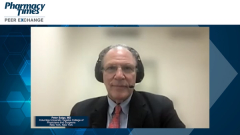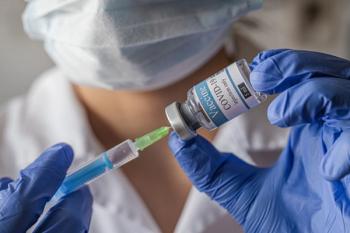
Expansion of COVID-19 Booster Shot Usage
Angela Rasmussen, PhD, and Donald Alcendor, PhD have a conversation on the recent expansion of COVID-19 booster shot usage in eligible populations.
Episodes in this series

Peter Salgo, MD: Angie, in terms of the politics here, there’s a recent expansion of the booster doses and booster recommendations in eligible population in the United States. Do you have any thoughts on that? Is it a good idea?
Angela Rasmussen, PhD: Well, this gets into a lot of politics because a lot of this has been spurred, just the other day President Biden cited expansion of boosters as being justified by the emergence of the Omicron variant. We don’t know that the Omicron variant is even going to be an issue at this point. It could be, and if it is, then certainly you can assume, based on data that have been collected with other variants that share some of the immune-evasive mutations that Omicron has, that increasing neutralizing antibody titers will in fact be helpful. And in that sense, I think that boosters are probably justified and warranted. However, if you’re using boosters just to reduce the overall number of breakthrough infections, and you’re not seeing an increase in hospitalizations and severe disease, then I think it’s a lot harder to justify them. It is what it is. The booster eligibility has been expanded dramatically; those boosters will be given out. I do think though that we run the risk of ignoring some of the populations that Donald was talking about, in terms of people who are either vaccine hesitant, vaccine resistant, or simply don’t have access to vaccines. That’s still the case for many communities, even in the United States.
Peter Salgo, MD: I mean that does raise the question: Is it more important to emphasize the boosters or to immunize the unvaccinated? I think I know the answer to this.
Donald Alcendor, PhD: I think it’s clear that you need to vaccinate the unvaccinated. I think the boosters would be warranted in those individuals who are older, or have immunocompromised conditions, and so forth. However, to avoid the unvaccinated in light of a booster is an overall mistake in judgement going forward.
Peter Salgo, MD: Right now, who’s eligible to get the COVID-19 booster? Now we understand that whenever we do this recording, whenever we do this broadcast, things change. Five seconds from now all of this is going to roll over and get changed, but in this moment, who’s eligible to get COVID-19 booster shots, Donald?
Donald Alcendor, PhD: If you’re 18 and above, you’re eligible for a booster. If you’re older than 50, you’re encouraged to get a booster. The idea is that you must look at this in many ways. We see people coming in now to get boosters over primary and secondary doses, meaning that people who want boosters, they’re already convinced that the vaccine is for them. There’s no edging on or trying to push them toward getting that booster. They sit down and get that booster right away; they think it’s going to work for them, and they’re excited about getting it.
Peter Salgo, MD: Is there a difference in the eligibility criteria or the science behind the boosters for the mRNA versus the non-mRNA vaccines?
Donald Alcendor, PhD: When you think about the eligibility criteria, before this expansion, the eligibility criteria from the CDC [Centers for Disease Control and Prevention] included smoking, depression. We’re talking about things that people had not heard of. Again, what it caused is confusion in the messaging. When we saw people come to the vaccine events, they didn’t even know if they were eligible, and the people who were vaccinating them didn’t really know if they were eligible either because this is breaking news. When you make this confusing, it causes a problem for people. Can you repeat your last question please?
Peter Salgo, MD: Yes. The other part of this is mRNA versus non-mRNA vaccine, differences in eligibility, differences in science here.
Donald Alcendor, PhD: Let’s talk about the science. When we talk about the mRNA cassettes, we’re talking about a modular system that was developed 20 years ago. Moderna had a lot of experience in this area. BioNTech, as the partner with Pfizer, also had a lot of experience in mRNA vaccines. They never made their way into the public arms in a large extent; they made their debut with SARS-CoV-1 and Ebola, but never got out in large numbers. We didn’t know how well they would do. Again, project Warp Speed put them at the front line, gave them an unlimited budget. And to deliver 94% and 95% efficacy, respectively, these vaccines will change our ideas of vaccines altogether. They are also now starting with combinatorial vaccines that will include influenza and COVID-19 on the same RNA cassette. Because these vaccines are modular, you can adapt them relatively quickly to variants as well. You can change the mRNA sequence, and now you have a targeted vaccine that can deal with a specific variant.
Peter Salgo, MD: I want to thank you at home for watching this Peer Exchange discussion. If you enjoyed the content, subscribe to our e-newsletters to receive upcoming Peer Exchanges and other great content right in your inbox.
Transcript edited for clarity.
Newsletter
Stay informed on drug updates, treatment guidelines, and pharmacy practice trends—subscribe to Pharmacy Times for weekly clinical insights.































